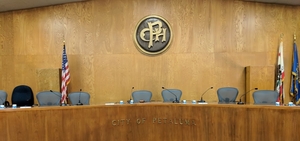What are the 11 duties of the chair?
Under Robert’s Rules of Order, the chair of a meeting has 11 duties.
These duties are listed in Robert’s Rules of Order Newly Revised, 12th edition, the only official and current version of Robert’s Rules, in section 47:7.
THE MEETING may be that of a city council, a nonprofit board, a professional society, a homeowners’ association, a fraternal order or any group that is organized as a “voluntary association” (that is, not a hierarchical organization such as the workplace with its “boss.” Read this post to learn about the difference.)
THE CHAIR (the person running the meeting) may be called chair, president, presiding officer, or something else.
Duties of chair do not include making the decision
Note that these duties are all about procedure—running the meeting well. The duties DO NOT INCLUDE lecturing or criticizing group members to make them vote the way you want, trying to convince people that you are right and they are wrong, or exercising your leadership position to determine the outcome of the vote. During the meeting, you are not responsible for the decision the group makes. You are the facilitator and the servant of the group.
Duties of chair in small groups
It is important to note that in large groups, the chair does not make motions, debate them, or vote (except by ballot). Robert has special rules for small boards (up to about 12 people). In small boards, unless state law, regulations, or the group’s bylaws say otherwise, the chair may debate, make motions and vote. Even so, the chair must exercise restraint. In order to achieve this, Jurassic Parliament recommends that on a small board, the chair should not make motions, and should speak and vote last.
Different duties of chair outside the meeting
OUTSIDE THE MEETING the chair has other duties which may involve giving orders, making decisions, managing affairs and setting a direction. We encourage all chairs of nonprofit boards and leaders in local government to keep this distinction clear. Outside the meeting, exercise all your proper powers. During the meeting, be the servant of the group, and always remember that you are not responsible for the decision the group makes. The group is responsible, and the group is the final authority.
Read more about how the group’s authority is exercised in our book, Mastering Council Meetings, and in blog posts about “appeal” on this website, here and here.
List of duties
| Open meeting | To open the meeting at the appointed time by taking the chair (sitting in the seat reserved for the presiding officer), after finding that a quorum is present, and calling the meeting to order. |
| Announce next activity | To announce in proper sequence the next activity before the group in accordance with the prescribed order of business. |
| Recognize members | To recognize group members who are entitled to the floor (who have the exclusive right to be heard at that time). |
| State questions and put to vote | To state and put to vote all questions that legitimately come before the group as motions or that otherwise arise in the course of proceedings, and to announce the result of each vote; or, if a motion that is not in order is made, to rule it out of order. |
| Refuse to recognize dilatory motions | To protect the group from obviously dilatory (time-wasting or obstructive) motions by refusing to recognize them. |
| Enforce order and decorum | Enforce order and decorum To enforce the rules relating to debate and those relating to order and decorum within the group. |
| Expedite business | To expedite business in every way compatible with the rights of group members and the group rules. |
| Decide all questions of order | To decide all questions of order subject to appeal—unless, when in doubt, the chair prefers initially to submit such a question to the group for decision. |
| Respond to inquiries | To respond to inquiries of group members relating to parliamentary procedure or factual information bearing on the business of the group. |
| Authenticate documents | To authenticate by signature, when necessary, all acts, orders and proceedings of the group. |
| Close meeting | To declare the meeting adjourned when the group so votes or—where applicable—at the time prescribed in the agenda, or at any time in the event of a sudden emergency affecting the safety of those present. |


